|
https://ift.tt/2Fy9A9q
How to Write Effective Facebook Sponsored Posts https://ift.tt/2TZVuGz
In this article, you’ll learn how to write and structure two types of longer-form text-based Facebook sponsored posts. Why Use Long-Form Facebook Sponsored Posts?A long-form Facebook sponsored post is simply a blog post or landing page within the body of your sponsored post. Instead of sending readers to blog content on your website and retargeting them with ads to narrow your buying audience, long-form sponsored posts are designed to keep users engaged with your content on Facebook. They prompt the reader to read more with the See More link in the first few lines of the text.
One of the big myths about content is that people have the attention span of a goldfish. In actual fact, multiple studies have proven that when people are engaged, they’ll readily consume long-form content.
When it comes to Facebook ads, many companies still hold the view that shorter is better. However, as an AdEspresso experiment shows, well-constructed longer-form sponsored posts consistently outperform shorter ads. They can lower your cost per acquisition, lead to more authentic conversations, and create increased sales conversions. Another reason why marketers have embraced long-form ads is due to Facebook announcing in 2018 that the algorithm would favor ads and content that keep users interacting, clicking, commenting, and sharing on Facebook. When everyone starts doing the same Facebook ads in the same way, it can be disengaging. Audiences crave variety, drama, and authenticity. When you rely on the same post formats time and again, you risk your audience tuning you out. Different factors determine the success or failure of a Facebook long-form sponsored post. Let’s look at two different examples that highlight what works and what doesn’t. Facebook Sponsored Post Type 1: Present the Problem/SolutionThis Facebook sponsored post is aimed at small businesses wanting to learn how to be more effective with their social media marketing and Facebook ads.
Now let’s look at the individual components of this sponsored post and what makes it effective. Call Out the Pain Point in the First SentenceThe post begins by calling out a clear pain point for readers. “Selling on Facebook doesn’t have to be hard” appeals to readers who think selling on Facebook is difficult. Then the post clearly spells out that the advertiser has the solution to this problem: “Our Facebook & Instagram Advertising Program has everything anyone could need. ?”
Questions to help you write this part of the ad:
Use an Aspirational Statement in the Ad HeadingDamn Good Academy also places an aspirational statement in the ad heading: “Learn to sell effortlessly online.” Psychologically, this statement primes the interested reader to click on the ad and read the rest of the text. Questions to help you write this part of the ad:
State Three Core BenefitsIn the next few lines, the advertiser lists three compelling benefits for people who want to improve their social media ads. These benefits highlight what underlies the key problem identified in the first line—people find selling on Facebook hard. Benefits aren’t the same as features. Features talk about the product or service, whereas benefits focus on the result the customer will get from using the product or service.
Questions to help you write this part of the Facebook ad:
Position Your Brand as the AuthorityNext, Damn Good Academy positions themselves as an authority to convey expertise in this field. The ad invites the reader to explore the brands they’ve worked with to add further weight to their authority. For consumers to know, like, and trust you, you need to give them confidence that working with you will provide them with the result they’re after. Some options for this section are to:
This information demonstrates your domain authority and establishes trust.
Questions to help you write this part of the ad:
State How You’re Different From CompetitorsAfter showing the reader their authority, Damn Good Academy positions their offering, stating how it differs from other available programs/courses. The statement “We’ve found that most courses just teach how to use the tools but not how to be profitable” clearly spells out how their offering is different. Questions to help you write this part of the Facebook ad:
Call Out ObjectionsDamn Good Academy shares further benefits and addresses common objections readers may have, such as:
By calling out reader objections in a clear and conversational manner, they’re boosting their authority while also being clear that taking action on the knowledge they share is vital to success. Questions to help you write this part of the ad:
Share Product/Program FeaturesNext, Damn Good Academy delivers their program’s promises, explaining exactly what they’ll cover. They state who the program is for: “beginner to intermediate” Facebook ads creators. They also reiterate how completing the program will enhance business performance.
Questions to help you write this part of the Facebook ad:
Wrap Up With a Friendly Sign-OffIn this example, Damn Good Academy ends their Facebook long-form sponsored post with a friendly message to the reader. I recommend that you test a version that includes the call to action within the body text, as well as one that has it just in the headline. You can do that by copying your initial ad in the Facebook Ads Manager dashboard and running an alternative version. Use EmojisAs you can see, this ad uses a lot of emojis. Using emojis in your Facebook sponsored posts has two main benefits:
Include Story-Based Video ContentThe video that Damn Good Academy uses in this Facebook sponsored post is unconventional and humorous. It adds spice to their post. They could have just used a talking head video selling people on the benefits of the campaign, but they chose to use a different approach and it paid off.
A video doesn’t need to be expensive or professional. Tools like Lumen5 make creating simple, story-based videos easy. ResultsThis Facebook ad campaign generated a significant reduction in cost per acquisition compared to shorter-form sponsored posts that Damn Good Academy had used previously. Starts March 20th! Discover the latest tactics and improve your marketing know-how!
Facebook Sponsored Post Type 2: Present the Hero’s JourneyAuthor and branding specialist Ben Angel chose a long-form Facebook sponsored post because it allowed him to communicate the full message about his book. The ad was supported by other marketing strategies including a landing page that featured numerous testimonies from doctors, psychologists, athletes, and nutritionists, as well as a 10-minute video that revealed his story and how his online program differed from others in the wellness space.
Ben’s long-form post uses a completely different approach to Damn Good Academy’s but achieved great results. Let’s break it down. Describe a Triggering Event to Set the SceneBen sets the scene for his story by sharing a triggering event. Notice that the image provides the perfect context? Here’s Ben lying down on a big empty stage, something we usually associate with success and power. The last sentence before the See More prompt leaves people hanging, which makes it more likely interested readers will click through and read the rest of the post. Questions to help you write this part of the ad:
Tell the BackstoryIn this section, Ben shares the journey that led to this triggering event. He walks the reader through his experiences, thoughts, and feelings. In contrast to Damn Good Academy’s post, this one shows a lot of vulnerability and helps the reader identify with the struggles he experienced as he points out the breakdowns that occurred along the way.
Being authentic about your setbacks can create a space for the reader to identify with you. Questions to help you write this part of the ad:
Challenge Conventional WisdomNext, Ben uses storytelling to argue his main point and challenge conventional wisdom about mental health. Although he’s taking the reader on a hero’s journey, he’s also taking a stand on how to solve the problem. Challenging conventional wisdom is a great way to show the reader how you’re different from your competitors and highlight your authority on a topic.
Questions to help you write this part of the ad:
Share Your QuestBen goes on to share the quest he went on to solve this problem and he dives into his discovery story. This section also further bolsters his authority because it shows the research he did for his book.
Questions to help you write this part of the ad:
State Your Results and Align Readers With Your PurposeIn this section, Ben shares his results with readers. He acknowledges people who may also be struggling with this issue and then shares his purpose. He calls on readers to take action by sharing some key benefits they’ll get out of his online program and further shows how he drew on expert knowledge to write his book and create his program.
Questions to help you write this part of your Facebook sponsored post:
Call the Reader to Action and Share OutcomesIn his call to action, Ben clearly spells out what the reader will get out of his 13-week challenge and shares a link to his landing page.
Questions to help you write this part of the Facebook ad:
Point Out the FeaturesBen spells out the program features and weaves in more benefits, including an offer and another call to action.
Questions to help you write this part of the Facebook ad:
Add a Final Call to ActionBen once again calls out a reader objection, reiterates his call to action, and signs off. He includes more authority statements at the end to further support why readers should trust him.
Questions to help you write this part of the ad:
ResultsBen reported that he made nearly $250,000 in sales from this one long-form Facebook sponsored post within a 3-month period. And even though the ad drove people directly to join the challenge and get his new book for free as part of the offer, Ben shared that an unexpected benefit was increased book sales on Amazon.
Ben said this campaign did better than any of his previous campaigns. He put this down to the in-depth audience research and testing he did at the beginning of the campaign. The ad had a high relevance score, which enabled him to lower his cost per click, increase ad spend overall, reach an audience of close to 6 million, and produce 278,000 engagements including more than 140,000 likes and 1,300 comments. Best Practices for Long-Form Facebook Sponsored PostsWhen writing long-form Facebook sponsored posts, here are a few issues you need to be aware of. Review Facebook’s Ad PolicyWhen creating long-form sponsored content, it pays to reference Facebook’s ad policy. It’s easy to make a mistake, particularly around the Personal Attributes guideline (12) or the misleading or false content policy (13). To avoid confusion, always keep this policy handy while writing your content.
Write Well-Structured and Authentic Ad CopyFacebook sponsored posts are only effective when they’re well-written. That’s why I recommend you follow a structure that works for other businesses. Stay on-point, provide evidence to back up your claims, and use examples that clearly spell out the value proposition for readers. Ben cautions that he never would have had such a huge response if he wasn’t as raw and honest in his copy as he was in the book. The marketing materials need to reflect your story, even if it’s full of setbacks and immense personal struggle. Tools like Hemingway app can help you check your word usage, grammar, and punctuation. You can gauge your post’s readability level on the Gunning Fog Index website.
Don’t Rely on Only One Facebook Ad TypeMix up your Facebook ad types for added variety. If you become too reliant on one ad type, you risk your intended readers scrolling past your content. Ben used a number of different Facebook ad types across his entire campaign and tested a lot of ad formats. The profits he made from that ad didn’t just appear by magic. He worked hard on his messaging, the support material, and ad testing to make the magic happen. If the Facebook post type doesn’t include the Learn More button, be sure to include clear calls to action throughout the post (not just at the end). ConclusionUsing long-form Facebook sponsored posts adds variety and authenticity to your Facebook ads. They can help you skip a step in the buyer lifecycle, narrow down your prequalified buyers, and save money on your ads. What do you think? Do you use long-form Facebook sponsored posts in your marketing? Share your experiences in the comments. More articles on Facebook ads:Starts March 20th! There are 17 tracks of content available to you at Social Media Marketing World. Don't miss this event! Social Media via Social Media Marketing | Social Media Examiner https://ift.tt/1LtH18p March 25, 2019 at 05:01AM
1 Comment
The one thing about Hemingway that I really don’t enjoy is that only the paid version has a direct publishing option to Wordpress. I’m sacrificing far too much time copying and pasting. My editorial team is testing the free version of Hemingway vs. INK (was seriously thrilled to have found INK), INK includes a WordPress plug-in for direct publishing. Also helps improve our writing and gives suggestions on SEO.
Reply
Leave a Reply. |
�
Amazing WeightLossCategories
All
Archives
November 2020
|


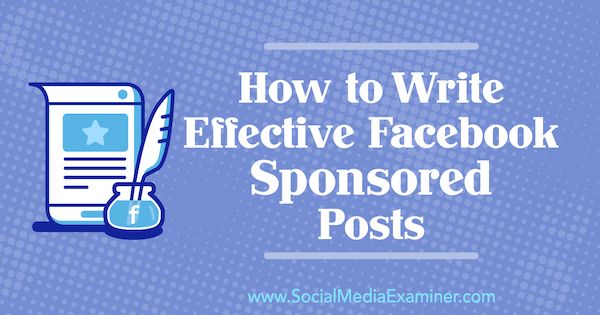
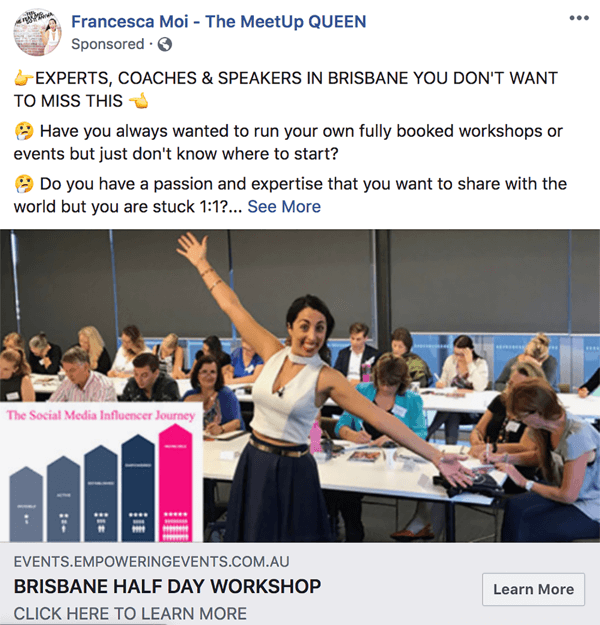
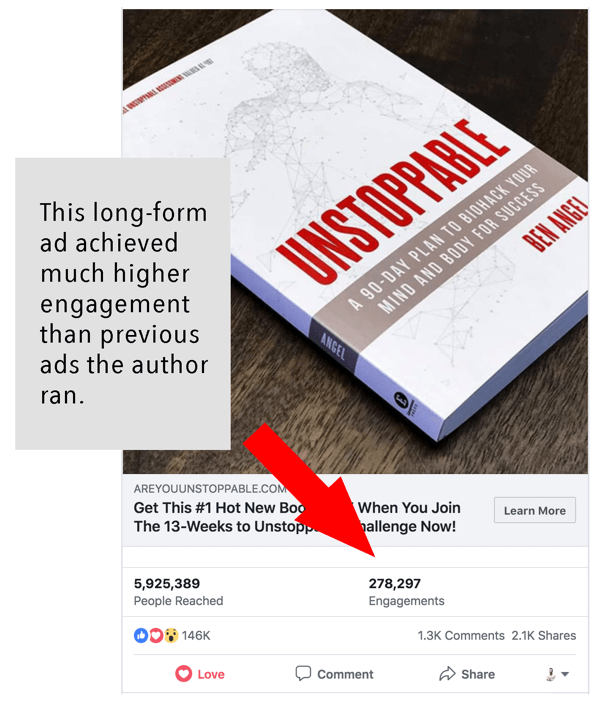
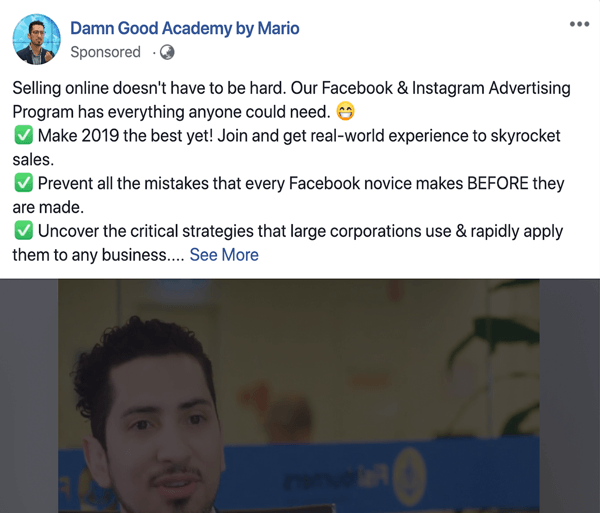

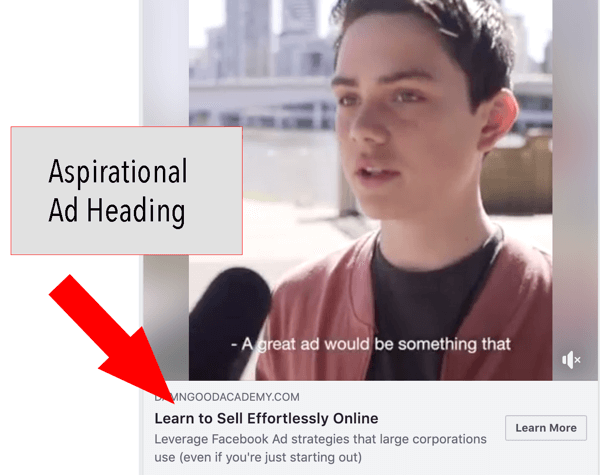

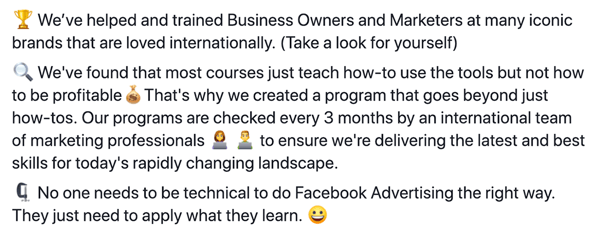


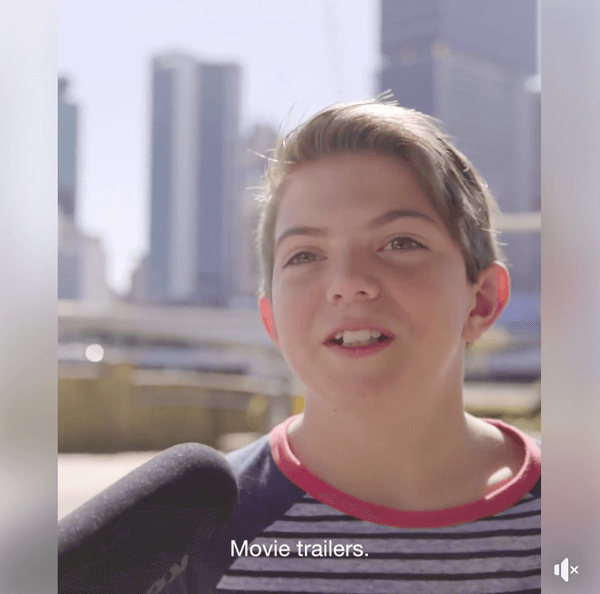
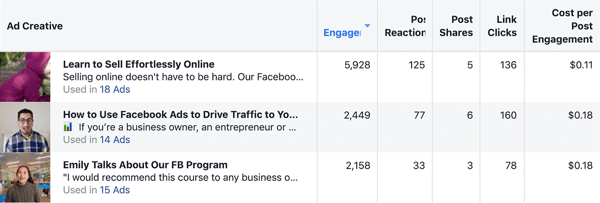
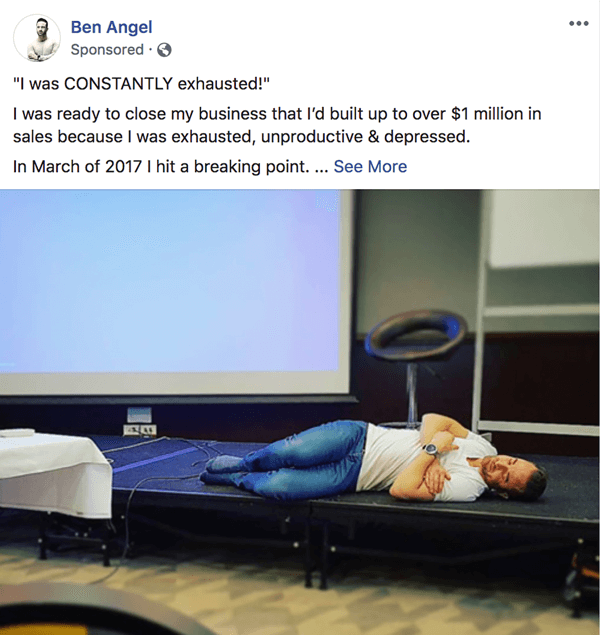
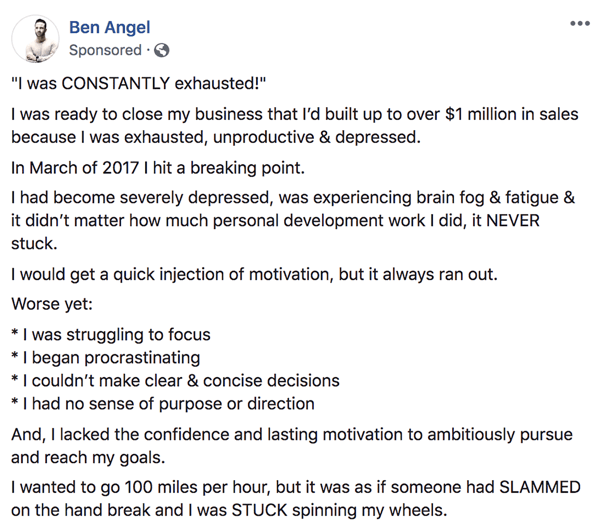
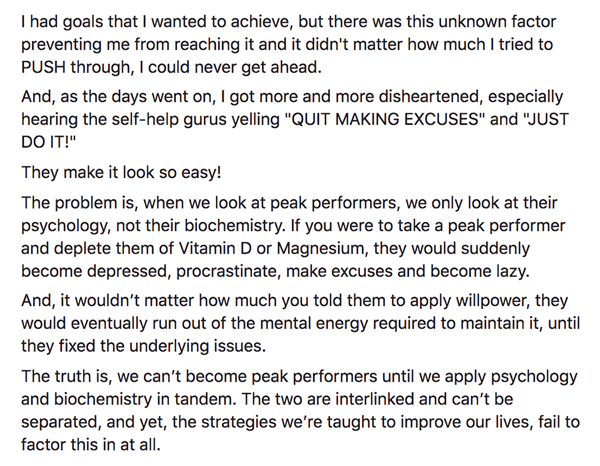
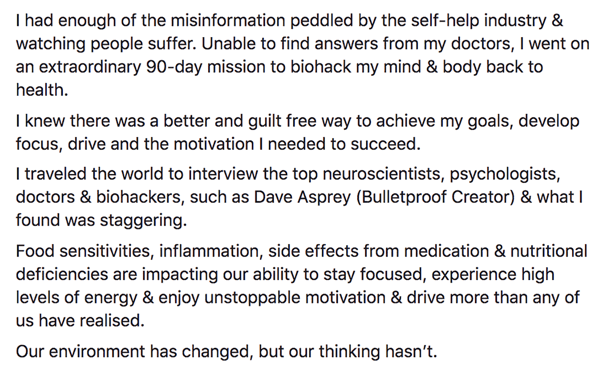
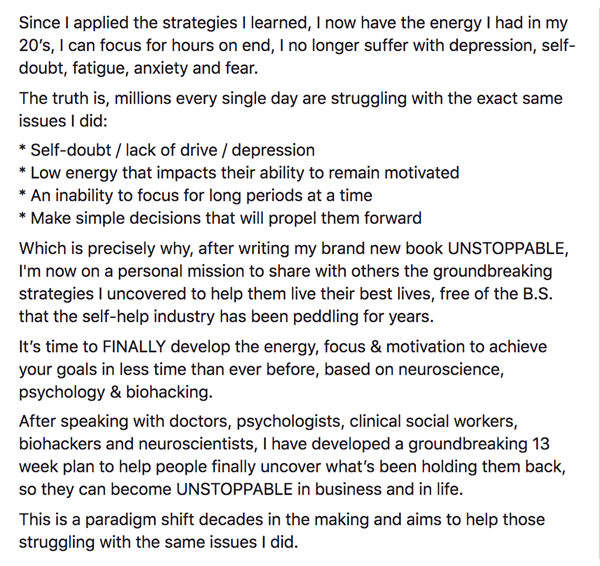
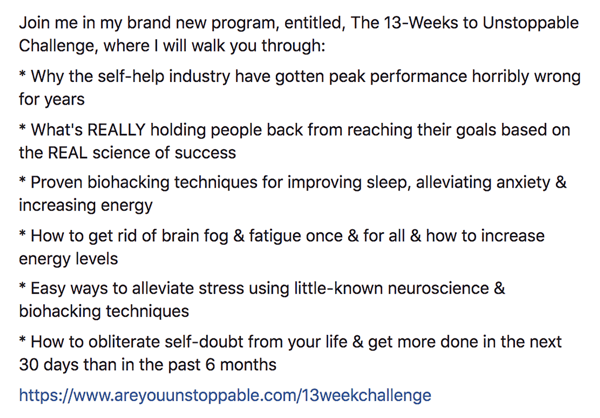
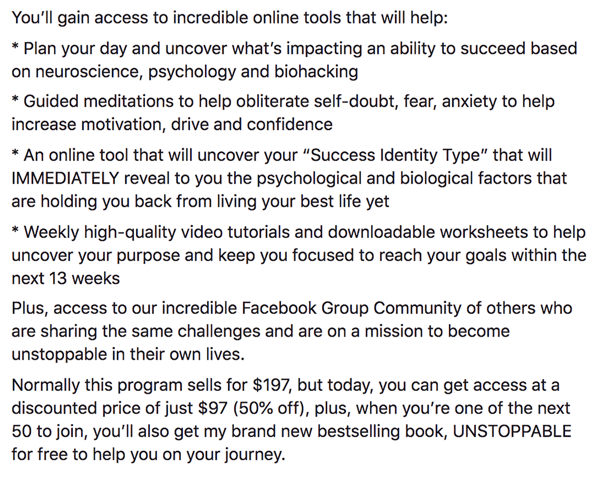
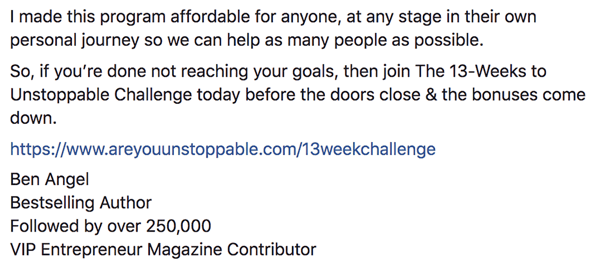
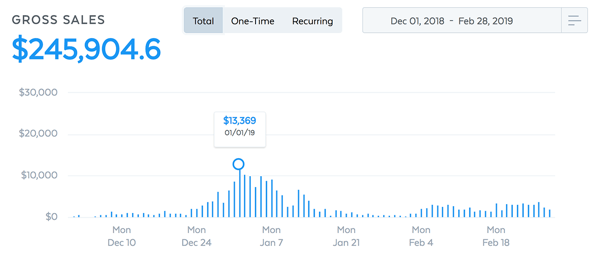

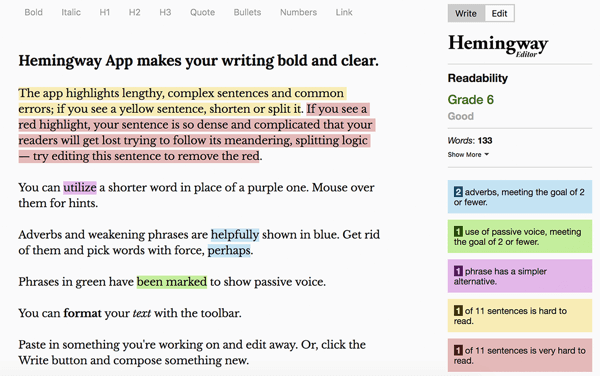

 RSS Feed
RSS Feed
